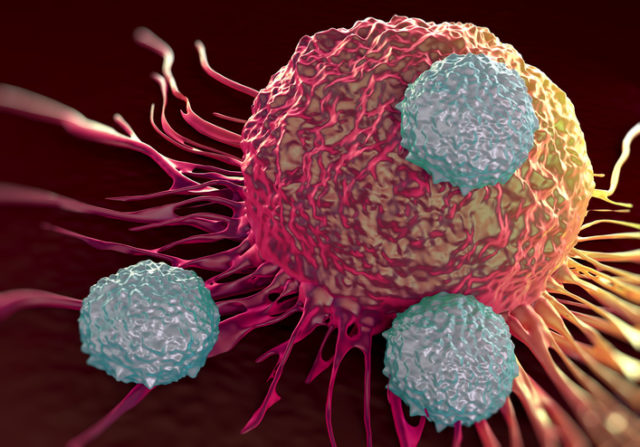
Cell therapy gives oncologists a powerful cancer-fighting tool, but these treatments made by engineering immune cells still have limitations. For one, their abilities in blood cancers fall short in solid tumors. Relatedly, the efficacy and durability of these therapies still has room for improvement. Affini-T Therapeutics is engineering cell therapies intended to overcome those hurdles, and the biotech startup now has $175 million to ramp up its work.
The financing announced Tuesday was co-led by Vida Ventures and Leaps by Bayer.
Affini-T, which is based in Boston and has research labs in Seattle, makes its cell therapies from two types of T cells, CD4 and CD8. These immune cells are engineered with T cell receptors (TCRs), receptors that recognize and bind to targets on cancer cells. Affini-T says its technology discovers TCRs that have a high affinity for binding to cancer targets while at the same time sparking a powerful immune response. Affini-T goes further, employing synthetic biology to engineer “switch receptors” that convert the immunosuppressive signals from the tumor into stimulatory ones. That’s key because the tumor microenvironment, the complex ecosystem of a cancer cell, is filled with mechanisms that suppress immune responses. Affini-T contends its cell therapies offer a coordinated and durable immune response in this hostile environment.
The science that is the basis of Affini-T’s approach stems from research at the Fred Hutchinson Cancer Research Center in Seattle, where scientific co-founder Phil Greenberg leads that center’s program in immunology. Affini-T’s research into the genetic drivers of cancer is initially focused on KRAS mutations, which are known drivers of many types of cancer but have been difficult to drug. KRAS is part of a family of genes that encode proteins involved in cell signaling, switching on or off to regulate cell growth. Mutated KRAS genes lead to the unregulated cell growth that happens in cancer.
“By targeting oncogenic drivers like mutated KRAS, we strike at the core genetic mutations that enable tumors to grow and spread,” Jak Knowles, Affini-T co-founder, president and CEO said in a prepared statement. “Our differentiated platform combines highly active TCRs with unique synthetic biology, allowing us to pioneer novel therapeutic approaches intended to eradicate solid tumors.”
Amgen won the first FDA approval for a KRAS cancer drug last year. The antibody, marketed as Lumakras, targets a specific mutation, KRAS G12C. The most advanced Affini-T KRAS program targets a different mutation, KRAS G12V. A second Affini-T program addressing KRAS G12D is in the discovery stage. Yet another Affini-T program is in the discovery stage for p53, a tumor-suppressing protein that has also stymied cancer drug hunters. In addition to developing therapies that address genetic drivers of cancer, the company is also pursuing viral drivers. According to the biotech’s website, it has already reached the clinic with a therapeutic candidate addressing Merkel Cell Polyomavirus (MCPyV), which can lead to a rare but aggressive type of skin cancer as well as other types of cancer.
Additional participants disclosed in Affini-T’s financing round include Humboldt Fund, The Parker Institute for Cancer Immunotherapy, Catalio Capital Management, Agent Capital, Alexandria Venture Investments, Erasca Ventures, Fred Hutchinson Cancer Research Center. The biotech said the funding will enable it to rev up use of its platform technology and advance toward the clinic with its programs addressing genetic drivers of cancer. The company said the cash will also support its pursuit of complementary technology licenses to beef up its cell therapy platform.
Affini-T joins a growing field of biotechs, some of them partnered with larger companies, taking similar approaches in the search for better cell therapies for cancer. TScan Therapeutics, which went public last year, has technology that discovers TCR targets. Adaptimmune Therapeutics is developing off-the-shelf cell therapies engineered with TCRs. Last September, Roche’s Genentech unit committed $300 million to being a multi-drug partnership with Adaptimmune. And last month, BioNTech acquired a preclinical TCR program from Medigene along with licenses to that biotech’s technologies, which includes switch receptor technology intended to overcome a way that cancer cells can escape the activity of T cells.
Photo: royaltystockphoto, Getty Images








